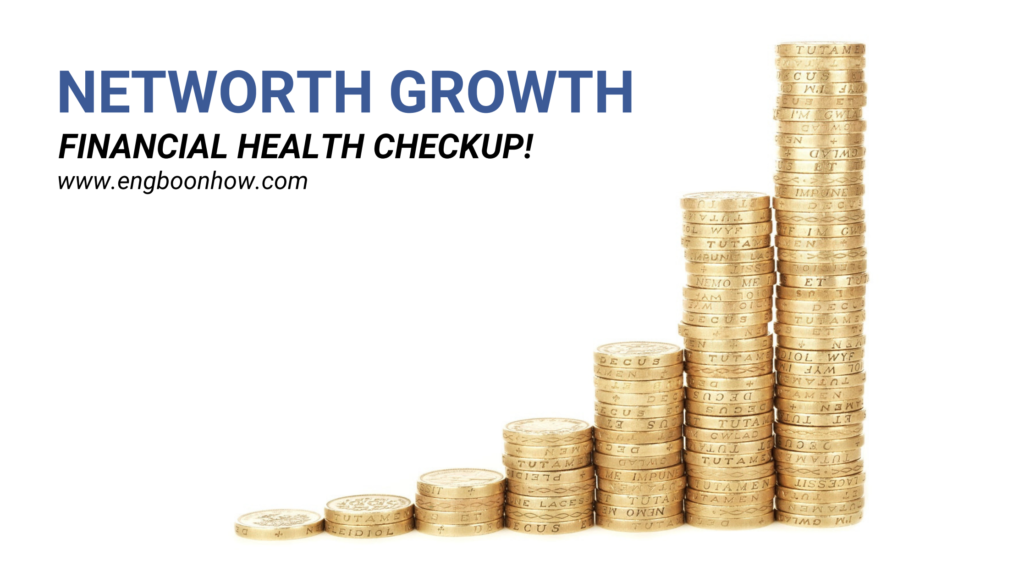2019 ended and it has been 1 year since I first wrote a blog post about tracking my finances. It has been 2 years since I tracked my finances religiously. There isn’t anything too different as compared to the previous years. I tracked my networth, cashflow, investments and expenses using Google Sheet. This is usually done at the end of every month and I will write a blog post after that.
The growth percentage is calculated using the difference between the networth figures on 31 December 2018 and 31 December 2019.
NETWORTH = BOOK VALUE
Networth = Book Value, Networth is meant for people, Book Value is meant for company.
Networth = Assets – Liabilities
I placed greater emphasis on tracking networth this year, modelling after Berkshire Hathaway’s tracking of Book Value. It enjoyed a 18.7% compounded annual gain over a few decades which resulted in a 1,091,899% total overall gain.
This may sound very complicated – in simple terms, it grew from a small unknown company into one of the largest in USA. If my networth can compound at such a rate, I think I can become quite a wealthy man.
EXPENSES
I have always been a someone which does not enjoy buying things. Things don’t usually satisfy me. I have no interest in luxury goods and do not spend money on things I do not need. Hence, I am not debt-ridden. However, towards the end of 2019, I spent quite a sum of money of medical bills (I fell sick badly). Some money was also spent buying electronics.
The majority of my expenses is spent on Food and Transport, which I believe are also the major expenses of most working adults. Food and Transport usually contribute about 40% of my total expenses for each month.
INVESTING & SPECULATING
An investment operation is one which, upon thorough analysis, promises safety of principal and a satisfactory return. Intelligent speculating is the taking of a risk that appears justified after careful weighing of the pros and cons.
These are the definitions of Investing and Speculating found in the 1934 edition of Security Analysis by Benjamin Graham and David Dodd. These definitions provided the backbone for my investing and speculating frameworks.
Yes, please do not doubt! I did read Security Analysis which is about 725 pages.
Because of my minimalist spending habit, I am able to deploy excess cash into investing and speculating. My investment result is not good for 2019 as I spent too much time building an automated trading algorithm. Basically, it meant something like a “robot that trades for me”.

I prefer to hunt for bargains in the global stock market, hence, ACWI was chosen as the benchmark. But it is definitely not a fair benchmark for the speculating account as my speculating account’s return came from trading currency.
Mediocre investing return of 1.94%:
Reason 1: spent too much time on building an algorithm to auto trade currency.
Reason 2: cash-hoarding which resulted in a drag in performance.
Steady speculating return of 36.75%:
Reason: spent a lot of time on building the algorithm to auto trade currency.
I could have deployed the cash portion in my investing account into ETFs but somehow, I overlooked it. This needs to be taken note of and I will try not to repeat the same mistake again in 2020.
FINAL THOUGHTS
Debt/Networth Ratio: 3.51%
Investment/Networth Ratio: 26.83%
Networth Year On Year Growth: +32.71%
The living expenses in Singapore has been going up steadily. There is even a price hike in public transport recently. Hence, it is becoming even more important to invest and to allocate resources properly.
I am looking forward to the day that I live off my investment returns. Till now, I will continue to work hard to earn more, save more and invest more.
Thanks for reading.
Disclaimer: www.engboonhow.com is an opinion based website. I am not a financial advisor, and the opinions on this site should not be considered as financial advice.
